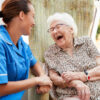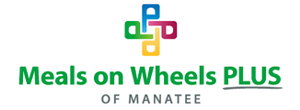Special thanks to The Recovery Village for this guest blog! The Recovery Village helps adults of all ages overcome addiction with locations throughout Florida and the US.
When considering the demographics that commonly struggle with drug or alcohol addiction, the elderly may not be the first that comes to mind. However, in the United States, nearly 2.5 million seniors face a substance use disorder. Adults over the age of 65 are more prone to addiction than most people (and some medical professionals) realize, and senior substance use disorders are often widely misunderstood and misdiagnosed.
Why Are Seniors Prone to Addiction?
As the elderly age, their mental and physical well-being decline significantly. Offsetting the uncomfortable side effects of growing older leads many seniors to supplement their health with an array of over-the-counter medications, multiple prescription drugs and even alcohol. Whether it’s a regular vice or a flawed coping mechanism, alcohol is the most commonly misused drug among seniors, followed closely by prescription drugs. Opioids (prescription painkillers) and benzodiazepines (sedatives) are almost as widely misused as alcohol: three in 10 seniors take at least five prescription drugs and 17 million tranquilizer prescriptions are taken by the elderlyeach year.
Individually, alcohol, opioids and benzodiazepines are all habit-forming. Mixed together, these substances can wreak havoc on an already strained metabolism. Making matters worse, elderly immune systems can quickly become tolerant of addictive drugs that they are unable to process efficiently. In addition to physical factors, cognitive decline, mental illness, frequent surgical procedures (which may require more prescriptions for pain) and medical misdiagnosis all spur drug and alcohol addictions in seniors.
Common Signs of Elderly Substance Misuse
Regardless of the type of substance use disorder, addiction always has warning signs, and being able to spot these symptoms is imperative for a senior’s friends and family members. Some of the most common physical and behavioral signs of senior addiction include:
- Disheveled physical appearance: poor grooming, an inability to dress themselves, pale complexion, skin issues or open wounds.
- Negative changes in mood: uncharacteristic fits of anger, drastic mood swings, increased irritability or hyperactivity.
- Estrangement from loved ones: appearing withdrawn or antisocial at gatherings, turning away friends who visit and refusing to attend family outings.
- Acting defensively when asked about medications: becoming angry, acting irrationally or raising their voice in response to innocent questions about alcohol or drug use.
- Unusual drinking or drug use habits: drinking before, during or after meals, taking pills while drinking or being secretive about alcohol or drug usage.
- Taking more medicine than necessary: hoarding a supply of “extra” pills, doctor-shopping or filling one prescription at multiple pharmacies.
Helping a Senior Who Faces Addiction
Watching someone you love struggle with a substance use disorder can be overwhelming and heartbreaking, but you aren’t powerless to help them. Encouraging a friend, neighbor or family member to seek treatment can include:
- Having an honest conversation: Talk with your loved one privately about the issues you’ve noticed and how their substance use affects you. Avoid criticism and judgment as they can elicit defensive responses and derail the discussion. Letting them know you care, and will hold them accountable, can be the push they need to seek help. Depending on the severity of your loved one’s addiction, this talk can be a simple heart-to-heart or a planned intervention with the support of family.
- Suggesting talking with their doctor: Many addictions start with a prescription, and far too many medications are habit-forming. If your loved one feels they can’t stop taking their medications, or takes higher doses than necessary, a check-in with their doctor can be beneficial. Once their use becomes more harmful than helpful, opioid pain-relievers can be exchanged for non-opiate medications, but your loved one must first be honest with their doctor. This conversation can mean the difference between struggling with addiction and leading a healthy life.
- Calling The Recovery Village: If you’re unsure how to broach the topic with your loved one, want answers about addiction or need information on local rehab options, The Recovery Village is only a telephone call away. You’ll be connected with a representative who understands the complexity of substance use disorders and may be in recovery themselves. They can suggest a level of care at a treatment location that best fits your loved one’s needs, and everything you discuss will be confidential, with no obligation to commit to a program.
















